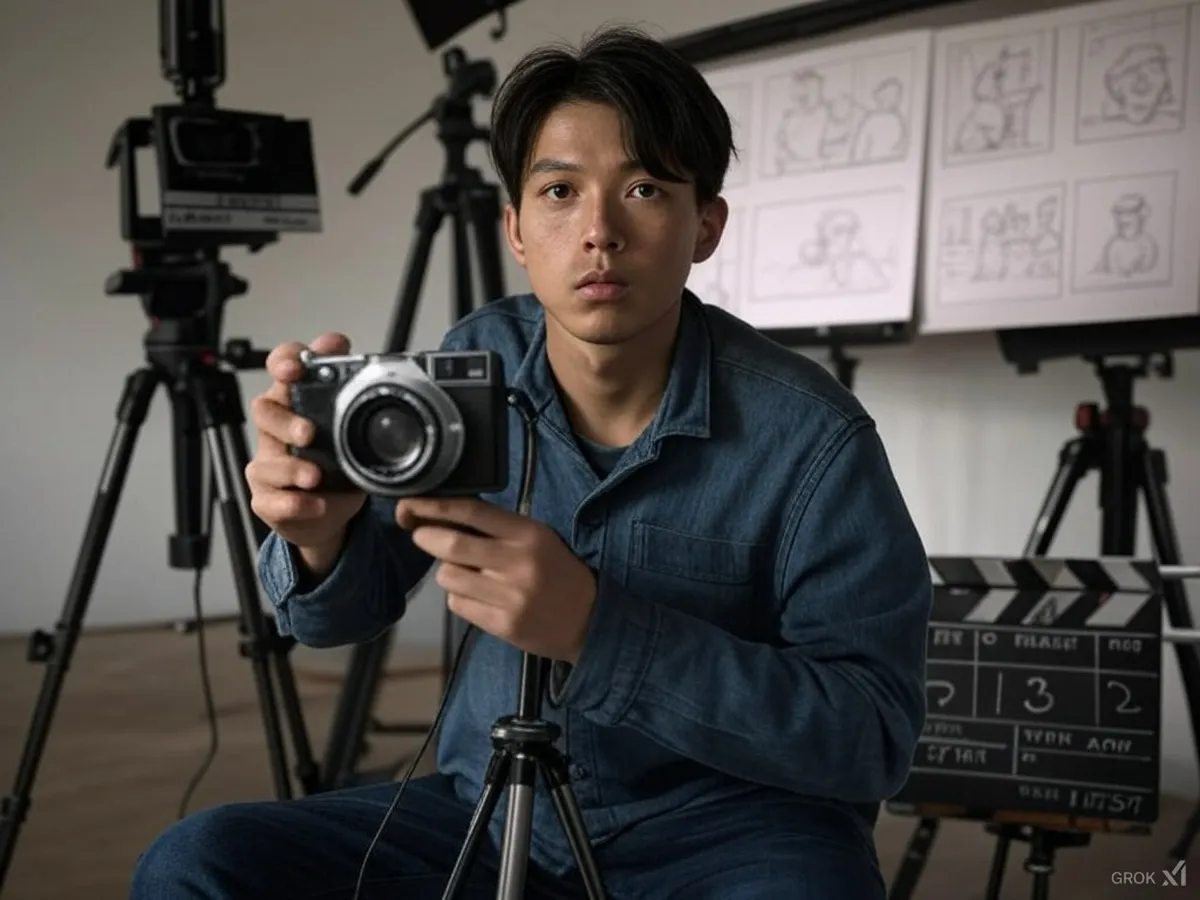Directors Who Didn''t Go to Film School
January 07, 2025
Breaking into the film industry often feels like an impossible dream, especially when the common advice is to attend an expensive film school. Film school is a significant commitment—financially, emotionally, and in terms of time. You might be wondering, “Do I need film school to succeed?” or “Are there directors who made it without going down this traditional path?”
If you’re asking yourself these questions, you’re not alone. Many aspiring filmmakers feel torn between following a conventional route and carving their own path. The good news is, you’re not doomed if film school isn’t in the cards. In fact, some of the most celebrated directors in history never set foot in film school. Let’s explore their journeys and uncover the lessons you can apply to your own filmmaking aspirations.
1. Film School: A Necessary Step or Just One Option?
Film schools promise structured learning, access to industry networks, and technical training, but they aren’t for everyone. The commitment can be daunting. High tuition costs, years spent in a classroom, and the pressure to follow a rigid curriculum might not align with your goals. You may be asking, “Can I still make it in this industry without a formal education?”
The answer is a resounding yes. Many directors have proven that there’s no one-size-fits-all path to filmmaking success. Their stories aren’t just inspiring—they’re roadmaps for anyone willing to take the leap.

2. Meet the Trailblazers: Directors Who Skipped Film School
If you’re skeptical about whether skipping film school is feasible, consider these iconic directors who did just that. They didn’t wait for permission or a degree to start creating—they built their careers through passion, grit, and creativity.
Quentin Tarantino
Before becoming a household name, Tarantino worked at a video rental store, immersing himself in films from every genre. His deep understanding of storytelling came not from textbooks but from watching and dissecting movies. His advice? “I didn’t go to film school; I went to films.”
Christopher Nolan
Nolan majored in English literature, but his technical filmmaking skills came from hands-on experimentation. He made short films on a shoestring budget, developing the cinematic style that now defines blockbusters like Inception and The Dark Knight.
Greta Gerwig
Known for her emotionally rich films like Lady Bird, Gerwig transitioned from acting to directing by observing and learning on set. She once said, “I learned by being curious, asking questions, and being brave enough to try.”
Their stories prove that success in filmmaking doesn’t come from a diploma—it comes from persistence, creativity, and resourcefulness.

3. What Can You Learn From Their Journeys?
These directors’ stories are more than just inspiring anecdotes—they offer actionable lessons:
Lesson 1: Passion Over Degrees
Your love for cinema can drive you further than any formal education. Passion fuels late nights, creative risks, and relentless pursuit of your goals.
Lesson 2: Start Small, Learn Big
Begin with short films or passion projects, even if all you have is a smartphone. Experiment, fail, and try again. Each project teaches you something new.
Lesson 3: Focus on Storytelling
Master the art of storytelling, as it transcends technical skills. A strong narrative captivates audiences, whether it’s shot on a DSLR or a high-budget film set.

4. How Screenplay Writer Can Kickstart Your Journey
While the directors we’ve discussed started from scratch, you don’t have to. Today, tools like the Screenplay Writer Google Docs add-on make it easier than ever to start your filmmaking journey. This tool helps you:
- Write and format professional-quality scripts in a familiar, flexible environment.
- Collaborate in real-time with co-writers or mentors.
- Focus on creativity while the tool handles technical formatting.
Whether you’re working on a short film, a feature, or just experimenting with ideas, Screenplay Writer gives you the foundation to get started, just like Tarantino’s video store or Nolan’s short films.
5. Should You Skip Film School?
The choice to attend film school is deeply personal. It depends on your resources, goals, and learning style. If you value structure and networking, film school might be worth it. But if you’re ready to start creating, the examples of these self-taught directors show that nothing is stopping you from succeeding on your own terms.
Remember, the journey matters just as much as the destination. Start where you are, use what you have, and let your passion lead the way.
Conclusion
Film school is a wonderful opportunity, but it’s not the only one. By following the examples of self-taught directors, leveraging modern tools like Screenplay Writer, and focusing on storytelling, you can begin your journey as a filmmaker today. So what’s stopping you? Start writing your script and take that first step toward your dream!